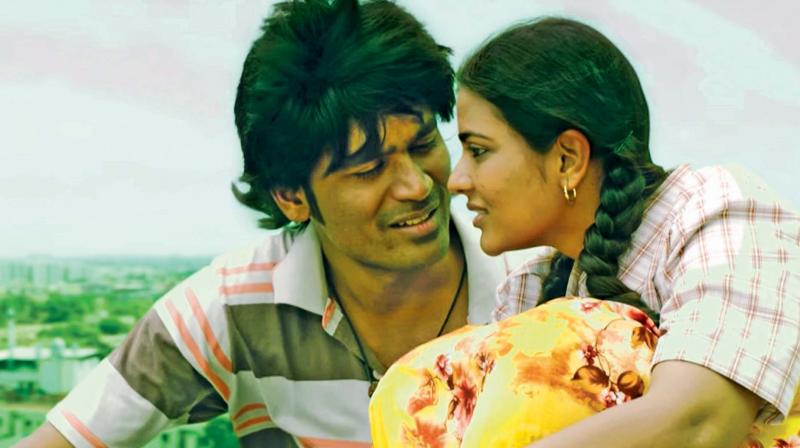Vada Chennai film review: Men are flawed, women angry
The remaining 160-odd minutes of this Vetri Maaran film follows a chapter-wise narration of how this came to be.

Vada Chennai
Cast: Dhanush, Aishwarya Rajesh, Andrea, Samuthirakani, Ameer, Kishore
Director: Vetri Maaran
Vada Chennai begins in 1987 with the murder of a powerful gangster. Set in the dilapidated streets of north Chennai, this murder puts into motion a sequence of events with Anbu (Dhanush) finding himself in the epicentre of it all. The remaining 160-odd minutes of this Vetri Maaran film follows a chapter-wise narration of how this came to be.
Ruthless killings take place in wars between rival gangs, hardened men and women living in what is more like a battlefield on grimy streets full of uncouth boys and man-children. Amid this chaos is a brimming community that still has a sense of justice and care for one another. These are the thematic aspects that you can enjoy in VC.
Guna (Samuthirakani) and Senthil (Kishore) used to be friends but now they're bitter enemies. Power and money are at the core of their struggles. It splits Guna and his aides Velu (Pawan) and his brother Shiva (Pawal Navageethan) on one side and Senthil and Pazhani (Sai Dheena) on the other. In the middle of the scuffle, the only person who brings the situation somewhat under control is Thambi (Daniel Balaji).
The setting is in the new millennium and Anbu, a professional carom player, is in jail. The story carries on in flashbacks and a relationship is established between the plethora of characters. Meanwhile, Anbu falls in love with a local girl Padma (Aishwarya Rajesh) whom he marries later, and this episode of his life too plays a vital role in the position he currently finds himself in.
Arrives Rajan (Ameer), again from the past — a smuggler who genuinely cares about the community. He is a popular figure and is the key that connects the numerous players. There's a politician- corporate link, which tries to force out the people from their land under the pretence of building a highway. In addition, his wife Chandra (Andrea Jeremiah) too has a link to Guna and Senthil.
How these timelines - beginning in 1987 and ending in 2003 - interact and bring out unlikely avatars of the people forms the reminder of the second half. The period setting is beautifully interlinked with the political events of the time like the deaths of MGR and Rajiv Gandhi as the backdrop.
Vada Chennai, for most parts, keeps it real: The men are full of flaws that are indicative of their backgrounds and upbringing, and the women don't shy away from displaying their anger and greediness. The proceedings tend to drag a bit and the flashbacks could have been reduced. Also, a more careful use of cuss words would have had a greater impact on the scenes. As it stands, the story is a bit slipshod, but the characters and the layered writing will ensure that your attention stands. On the downside, there are umpteen numbers of characters who walk into each and every frame and dialogues are not clear at some places.
It is a cakewalk for Dhanush in an author-backed role. Though it has shades of his earlier movie Aadukalam, what makes it different is his nuanced performance. Ameer is a revelation. Aishwarya Rajesh once again proves her versatility essaying a typical north Chennai girl fluently mouthing swear words. Andrea's intriguing character takes the film to a different dimension.
All the others, including Samuthirakani, Kishore, Daniel Balaji, Pawan, Pawal own the given screen space. Velraj's camera splendidly captures the soul of Vada Chennai in its true essence. Santhosh Narayanan's gritty music elevates the mood of the proceedings. The film ends with an open climax, which suggests the story of the rise of Anbu as the gang leader in part 2 of a possible trilogy.

